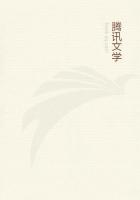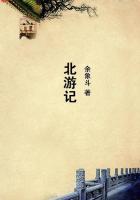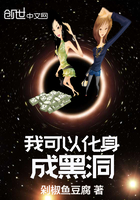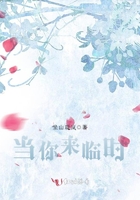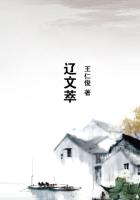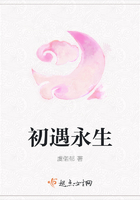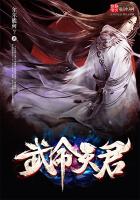After that Zhílin's fame spread; and Tartars came from distant villages, bringing him now the lock of a gun or of a pistol, now a watch, to mend. His master gave him some tools -- pincers, gimlets, and a file.
One day a Tartar fell ill, and they came to Zhílin saying, 'Come and heal him!' Zhílin knew nothing about doctoring, but he went to look, and thought to himself, 'Perhaps he will get well anyway.'
He returned to the barn, mixed some water with sand, and then in the presence of the Tartars whispered some words over it and gave it to the sick man to drink. Luckily for him, the Tartar recovered.
Zhílin began to pick up their language a little, and some of the Tartars grew familiar with him. When they wanted him, they would call: 'Iván! Iván!' Others, however, still looked at him askance, as at a wild beast.
The red-bearded Tartar disliked Zhílin. Whenever he saw him he frowned and turned away, or swore at him. There was also an old man there who did not live in the Aoul, but used to come up from the foot of the hill. Zhílin only saw him when he passed on his way to the Mosque. He was short, and had a white cloth wound round his hat. His beard and moustaches were clipped, and white as snow; and his face was wrinkled and brick-red. His nose was hooked like a hawk's, his grey eyes looked cruel, and he had no teeth except two tusks. He would pass, with his turban on his head, leaning on his staff, and glaring round him like a wolf. If he saw Zhílin he would snort with anger and turn away.
Once Zhílin descended the hill to see where the old man lived.
He went down along the pathway and came to a little garden surrounded by a stone wall; and behind the wall he saw cherry and apricot trees, and a hut with a flat roof. He came closer, and saw hives made of plaited straw, and bees flying about and humming.
The old man was kneeling, busy doing something with a hive. Zhílin stretched to look, and his shackles rattled.
The old man turned round, and, giving a yell, snatched a pistol from his belt and shot at Zhílin, who just managed to shelter himself behind the stone wall.
The old man went to Zhílin's master to complain. The master called Zhílin, and said with a laugh, 'Why did you go to the old man's house?'
'I did him no harm,' replied Zhílin. 'I only wanted to see how he lived.'
The master repeated what Zhílin said.
But the old man was in a rage; he hissed and jabbered, showing his tusks, and shaking his fists at Zhílin.
Zhílin could not understand all, but he gathered that the old man was telling Abdul he ought not to keep Russians in the Aoul, but ought to kill them. At last the old man went away.
Zhílin asked the master who the old man was.
'He is a great man!' said the master. 'He was the bravest of our fellows; he killed many Russians and was at one time very rich.
He had three wives and eight sons, and they all lived in one village.
Then the Russians came and destroyed the village, and killed seven of his sons. Only one son was left, and he gave himself up to the Russians. The old man also went and gave himself up, and lived among the Russians for three months. At the end of that time he found his son, killed him with his own hands, and then escaped. After that he left off fighting, and went to Mecca to pray to God; that is why he wears a turban. One who has been to Mecca is called "Hadji," and wears a turban. He does not like you fellows. He tells me to kill you. But I can't kill you. I have paid money for you and, besides, I have grown fond of you, Iván.
Far from killing you, I would not even let you go if I had not promised.' And he laughed, saying in Russian, 'You, Iván, good; I, Abdul, good!'
IV
Zhílin lived in this way for a month. During the day he sauntered about the Aoul or busied himself with some handicraft, but at night, when all was silent in the Aoul, he dug at the floor of the barn. It was no easy task digging, because of the stones; but he worked away at them with his file, and at last had made a hole under the wall large enough to get through.
'If only I could get to know the lay of the land,' thought he, 'and which way to go! But none of the Tartars will tell me.'
So he chose a day when the master was away from home, and set off after dinner to climb the hill beyond the village, and to look around. But before leaving home the master always gave orders to his son to watch Zhílin, and not to lose sight of him. So the lad ran after Zhílin, shouting: 'Don't go! Father does not allow it. I'll call the neighbours if you won't come back.'
Zhílin tried to persuade him, and said: 'I'm not going far; I only want to climb that hill. I want to find a herb -- to cure sick people with. You come with me if you like. How can I run away with these shackles on? To-morrow I'll make a bow and arrows for you.'
So he persuaded the lad, and they went. To look at the hill, it did not seem far to the top; but it was hard walking with shackles on his leg. Zhílin went on and on, but it was all he could do to reach the top. There he sat down and noted how the land lay. To the south, beyond the barn, was a valley in which a herd of horses was pasturing and at the bottom of the valley one could see another Aoul. Beyond that was a still steeper hill, and another hill beyond that. Between the hills, in the blue distance, were forests, and still further off were mountains, rising higher and higher.

